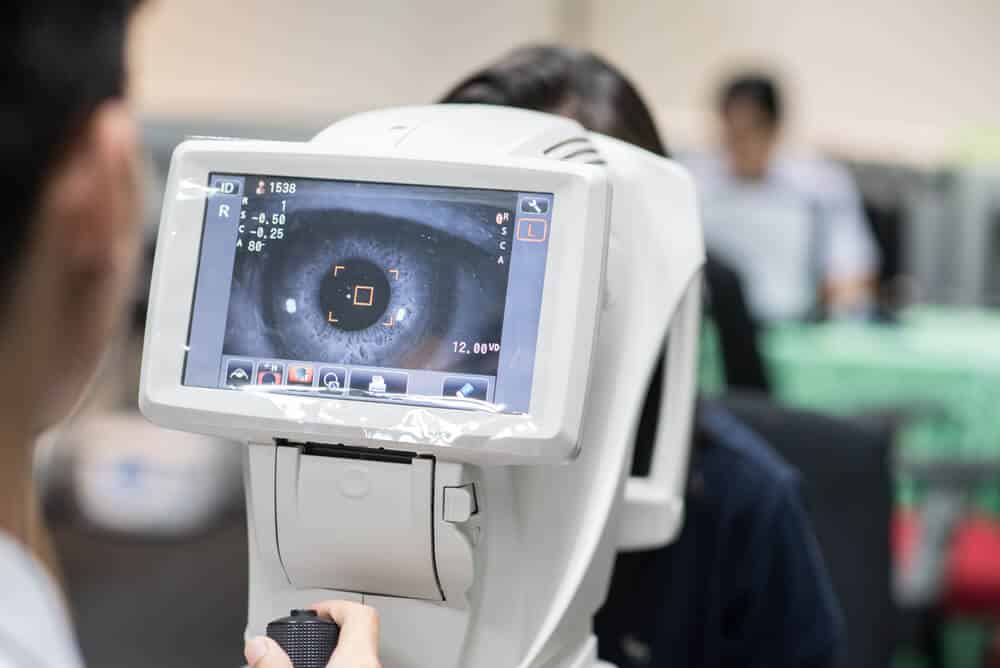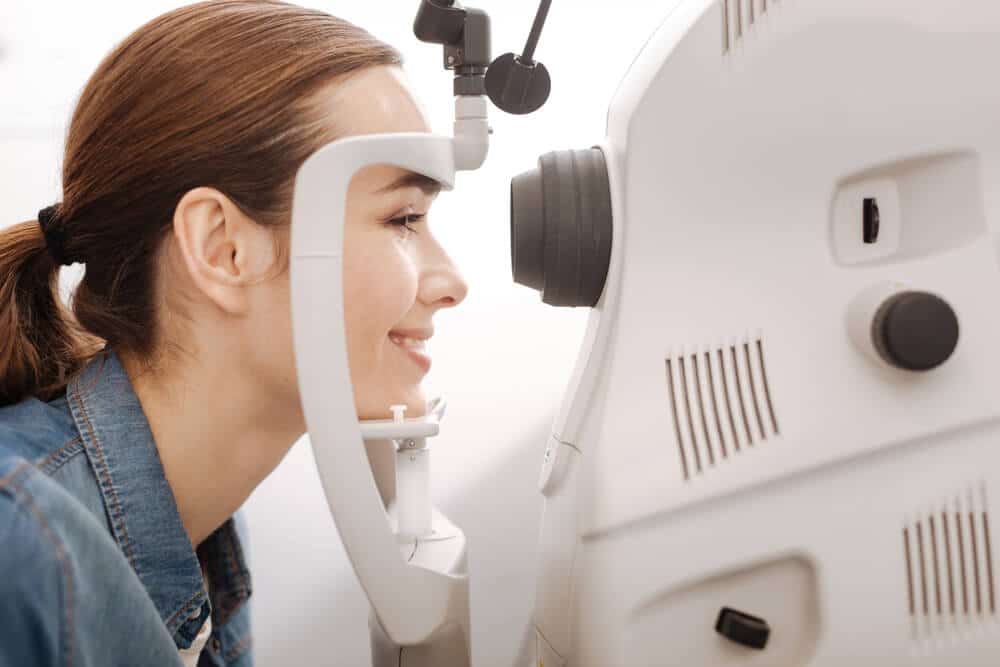Your eyes are one of the most important parts of your body. If you can’t see, you would be very limited in what you can do in day-to-day life. It is crucial to do what you can to keep your eyes healthy for as long as possible.
Everyone can expect their vision to worsen as they age, but getting them checked can help them stay strong for longer. Everyone should go to an eye examination to have their eyes checked, but how often should you get an eye exam? That is a question that frustrates people all over the world.
Some doctors will tell you to get a yearly eye exam, but that is not always necessary. Depending on your age and the health of your eyes, you should be getting your eyes checked at different frequencies. Additionally, it will affect the type of eye exam you get, for example, a comprehensive or dilated eye exam.

Factors That Determine Eye Exam Frequency
There are a few details that determine the frequency at which you should get your eyes checked. While other things can come into play, the following four factors are the most important things to consider.
1. Age
Your age will impact how often you should receive an eye exam. Children do not need to have eye exams unless there is a noticeable change in their vision. However, by the time you reach the age of 20, you should have your eyes examined at regular intervals, often with a yearly eye exam.
From ages 20 to 40, the frequency does not need to be high. However, by the time you reach middle age and older, the frequency you need to take an eye exam increases.
2. Family History of Eye Problems
If your family has a history of eye problems, you should have your eyes checked more often. Notably, if you are a parent and your family has a history of deteriorating vision in adolescence, you should schedule regular eye exams for your children. Getting them glasses early will help your children keep their vision as strong as possible.
Furthermore, eye conditions such as blindness and cataracts usually run in a family. So, if a family member has suffered from one of these issues, it is smart to have your eyes and your children’s eyes checked regularly.
3. Personal Vision and Health History
The most important factor to consider when figuring out how often you should get an eye exam is your vision and health history. If your vision is bad and you have a poor health history, it is crucial to get your eyes checked frequently.
People with poor vision will usually have their eyes checked every one or two years, depending on the severity of their condition.
4. Current Vision and Eye Health
Finally, the current state of your vision will impact how often you need to have an eye exam. If you wear glasses but have a weak prescription, you can get your eyes checked once every five years. However, if you have poor vision or a very strong prescription, it is better to get your eyes examined annually.
Recommended Eye Exam Frequency
Your age affects how often you should get an eye exam. Here are some guidelines for how long you should wait between eye exams depending on your age.
Children and Adolescents
Children and adolescents must take eye exams less often than any other age group. This should not be a surprise as when we are young there has been very little time for our vision to deteriorate. However, that does not mean children should never visit the eye doctor.
Notably, children will have their eyes checked when they are born to ensure there are no immediate issues at birth. You should then get your child’s eyes checked before they turn three so that a pediatrician can look for common childhood problems. Some problems they will look for include a lazy eye or crossed eyes.
Fortunately, you do not need to see an eye doctor for this examination. Your family pediatrician will be able to perform this exam. If they find something problematic, they will refer you to a specialist for a more thorough exam. It is then smart to get your kid’s eyes checked again before they enter school.
Once children start school, you can take them to an eye examination every two or three years. However, you do not need to visit a specialist unless they need glasses. Their pediatrician will examine their eyes and can perform basic vision tests.
Adults Under 40
Most people need corrective lenses of some sort by the time they are adults. If you are lucky enough to not need glasses at age 20, the chance you will need them increases with each passing year. As a result, it is crucial to have your eyes checked every two or three years by a specialist.
However, while the chances that your vision will start to deteriorate increases as you enter adulthood, the speed decreases. You are less likely to experience rapid vision loss as an adult under 40 than as a child.
Finally, it is crucial to note that people with glasses or contacts should have their eyes checked more often than those with no vision issues.
Adults Over 40
By the time people reach the age of 40, they usually wear glasses or contacts. However, even if you still have perfect vision, this age is when you should start getting yearly eye exams.
Eye lenses begin hardening at around age 35, and as a result, vision starts to deteriorate. This deterioration affects near vision, which is why many older adults have reading glasses.
With that in mind, adults over 40 should go to the eye doctor once every one to two years. People with worse vision might need to go every six months. Your optometrist will recommend a frequency to you that will likely increase as you get into your 50s, 60s, and 70s.
Special Considerations
Finally, several things can increase the chance of your vision deteriorating. Notably, type 2 diabetes, high blood pressure, and glaucoma can cause vision loss. If you have one of these conditions, you should go to the eye doctor more often.
Consequences of Skipping Eye Exams
There are two notable consequences of skipping your eye exams. First, your vision will decrease, and you will not have the right prescription to compensate. As a result, you will strain your eyes, which will cause your vision to deteriorate further.
Finally, skipping your eye exams increases your risk of eye disease and other conditions. Notably, eye doctors can look for risk factors that can lead to glaucoma. If you avoid going to the eye doctor, they will not be able to help you. As a result, you will have an increased risk of eye disease, which could lead to severe consequences.
It is smart to have your vision checked regularly to maintain your eye health. Doing so will help you keep your vision through your twilight years.
How Often Should You Get an Eye Exam for the Best Eye Health?

Everyone must get their eyes checked. However, the frequency at which it is necessary varies based on several factors. Children should go once every two years because they are at risk of quick vision loss.
Once you reach the age of 20, you only need to go once every three years if you do not wear corrective lenses. Finally, at age 40, you should visit your optometrist every one or two years.
While these numbers are good baselines to work with, people with corrective lenses should get their eyes checked more often. You should check with your eye doctor to see how often they recommend you take an eye exam. You can contact Art of Optiks today to schedule an eye exam and make sure your eyes are healthy.

